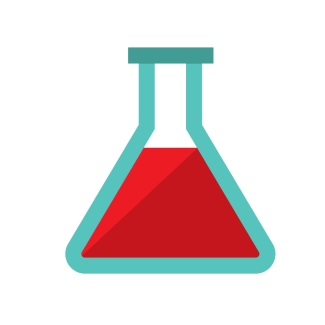International collaboration on the cusp of delivering a new, more precise way to type blood
Wednesday, September 29, 2021 Tricia Abe
A powerful collaboration between blood services, research institutions and industry leaders promises to bring blood transfusion therapy to new levels of precision and safety. The work is being conducted by a group called the Blood transfusion Genomics Consortium (BGC) that includes global leaders in genomics and hematology. Their ambitious two-year plan aims to establish international standards for a comprehensive and affordable DNA-based blood typing test—setting the stage for the first clinical application of this type of high-throughput technology in transfusion medicine.
According to medical officer Dr. Celina Montemayor-Garcia, who represents Canadian Blood Services on the Consortium, the test has the potential to transform our ability to detect even minor variations in blood type and introduce genomics into daily clinical use. “It’ll bring us to that dream of doing high resolution blood matching at the genomic level,” says Montemayor-Garcia. “Blood suppliers and blood recipients from around the world will benefit from this.”
Advances in efficiency and precision
The test would make transfusions safer for the millions of patients around the world, including over 200,000 patients in Canada who have blood transfusions each year. What makes the test so ground-breaking is its ability to use thousands of DNA probes to search specific areas of the genome for variation in the genes that determine our blood type, not just the genes for antigens that determine our ABO group and Rh group (for which donated blood is routinely tested) but the whole diversity of variation across hundreds of different blood antigens. This includes clinically relevant antigens for red blood cells, platelets, and white blood cells, as well as other markers that can be important in transplantation and transfusion.
“We’ll be able to detect antigens that we can’t detect with our current technology, using a high-throughput, affordable test” says Montemayor-Garcia. “And we will do it precisely.”
High resolution matching
For red blood cell transfusions, more precise matching between a patient’s blood type and the donated blood they receive through transfusion is significant because it lowers the risk that a patient will experience complications that can happen if blood is mismatched. This is particularly consequential for patients who require regular transfusions, such as patients with sickle cell disease or other blood disorders.
The test could also make it easier to find rare blood for patients who need it. “Rare blood, by definition, is blood with an infrequent antigen profile that may not be routinely tested for in our current platforms. For some patients who need rare blood, it can be a challenge to support them with rare red blood cell units,” explains Montemayor-Garcia. “But by doing extended blood genotyping in an affordable way, we hope we’ll be able to identify more donors with rare blood and increase the rare blood inventory we have here in Canada.”
The work ahead
Before the test can be considered for use in Canada, it first has to be validated in a second preclinical study (the first preclinical study was published in 2020). For this validation work, Canadian Blood Services contributed more than 1,700 anonymized blood samples from donors that will be genotyped for red blood cell antigens. The test will then be evaluated in a clinical study planned for 2022. And finally, after the clinical study is complete the test will be considered for regulatory approval from Health Canada.
Montemayor-Garcia says the group is now in the process of validating the test. She is also leading the development of international guidelines on using the test in daily clinical practice. “As we move forward, it’s really important that anyone who wants to bring genomics for blood typing to clinical practice has guidelines on how to do it, that the guidance is available through international, open access platforms, reflecting the experience of the Consortium rather than our national silos,” she adds. “Working together gets you further, faster.”

The ThermoFisher array. One plate can be used to genotype 384 blood samples. Each array (purple square) contains thousands of DNA probes that search specific areas of the genome for variation in the genes that determine our blood type.
Canadian Blood Services – Driving world-class innovation
Through discovery, development and applied research, Canadian Blood Services drives world-class innovation in blood transfusion, cellular therapy and transplantation—bringing clarity and insight to an increasingly complex healthcare future. Our dedicated research team and extended network of partners engage in exploratory and applied research to create new knowledge, inform and enhance best practices, contribute to the development of new services and technologies, and build capacity through training and collaboration. Find out more about our research impact.
The opinions reflected in this post are those of the author and do not necessarily reflect the opinions of Canadian Blood Services nor do they reflect the views of Health Canada or any other funding agency.
Related blog posts
Dr. Celina Montemayor-Garcia is a researcher and transfusion medicine specialist whose main interest is understanding how genomics and bioinformatics can be used to improve care for transfusion patients. She spoke to us about advances in precision medicine and genomics, and what they could mean for the future of blood systems.
A research team that includes experts from Canadian Blood Services and the McMaster Centre for Transfusion Research showed that genotyping red blood cell proteins could help make transfusions safer for patients with sickle cell disease.
When a patient has unexpected red blood cell antibodies (non-ABO) in their blood, selecting compatible red blood cell donor units for transfusion is critical. New serological best practices for health-care providers, available on Canadian Blood Service’s professional education website, help ensure patients receive red blood cell units that are the best match for them.


